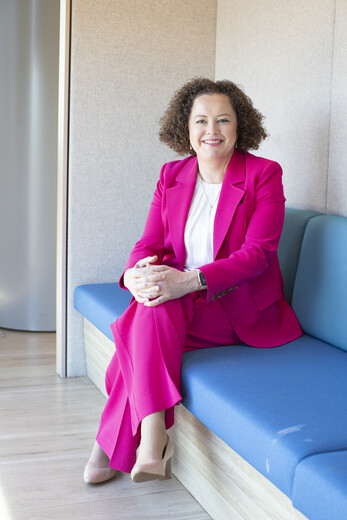Heather Cahill, Oncology Business Director for AstraZeneca Australia and New Zealand, says healthy women are integral to thriving societies. Yet globally, breast cancer remains the leading cause of female cancer deaths. She highlights the launch of the Breast Cancer Care Quality Index and urges action to turn ambitious global targets into measurable outcomes.

Healthy women are vital to strengthening societies, communities and indeed the global economy.
However, despite significant progress in advancing outcomes over recent decades, breast cancer continues to be the leading cause of female cancer deaths globally – placing a heavy burden on people, communities and economies1.
In 2022 alone, breast cancer caused more than 665,000 deaths worldwide, with projections indicating approximately 3 million new cases of the disease by 2040.
International organisations, including the World Health Organisation’s Global Breast Cancer Initiative, have set important goals to lower breast cancer deaths. These include aiming for a 2.5 per cent yearly drop in breast cancer mortality, which could prevent 2.5 million deaths by 2040.
However, most countries are not reaching this target, and new policies are urgently needed to close this gap.
To help address this, a multidisciplinary team of international experts recently launched the Breast Cancer Care Quality Index (BCCQI), a new tool to help countries turn global targets into local action.
Developed by healthcare professionals, policymakers and patient advocates with support from AstraZeneca, the BCCQI is a flexible, data-driven framework designed to enable countries to assess their breast cancer policies, identify critical gaps, and develop tailored roadmaps for improvement.
At its heart is the goal of ensuring delivery of services that are truly meaningful for patients.
As such, the BCCQI is built around five key domains for breast cancer care improvement: health equity, patient-centred care, universal health coverage, healthcare quality, and treatment effectiveness.
An Australian woman with lived experience of breast cancer, Naveena Nekkalapudi, contributed her lived experience to the crafting of the index.
In Naveena’s words, the BCCQI “serves as a vital practical bridge between ambitious global objectives and local realities, providing countries with the tailored, data-driven tools and strategies necessary to ensure that every breast cancer patient – regardless of their geographic location, socioeconomic status, or background – receives the quality care they deserve through effective on-the-ground action”.
Certainly, the story of breast cancer is not over just because we have reached a 92 per cent survival rate for some subtypes and for some patients, such as those who live in the urban areas of high-income countries.
The disparities in care between countries – and also within countries, such as those living in regional, rural and remote areas or marginalised populations – is a huge problem that needs to be addressed.
As Naveena outlines, this is “a revolutionary development in breast cancer care” – the next steps for which are to gain support from UN member nations to adopt and use this tool to identify gaps in care and reduce inequities.
A global and coordinated effort is very much needed given that sadly, most people know at least one person who has been affected by breast cancer, and often more than one.
In my role as Business Unit Director of Oncology at AstraZeneca Australia and New Zealand, I’m privileged to lead a team of professionals dedicated to earlier diagnosis, faster access to medicines and fairer access to treatments regardless of a person’s diagnosis, age, state of disease, location or income. For many of us, including me, it’s deeply personal.
My colleague Michael Lauritzen, AstraZeneca’s Chief Financial Officer, lost his mother to metastatic breast cancer in 2011, and later this month, he will cycle 180km from Jindabyne to Canberra in honour of her memory and to raise awareness and funds for the patient advocacy and support organisation MBC Action Australia.
By collaborating to transform patient outcomes through innovative medicines and by addressing barriers to optimal care, we at AstraZeneca are confident we can advance our ambition to eliminate breast cancer as a cause of death. And what a world that would be.
This Breast Cancer Awareness Month, let’s honour women like Naveena and Michael’s late mother Grete as we keep working in partnership to shape brighter and more equitable outcomes for all.
